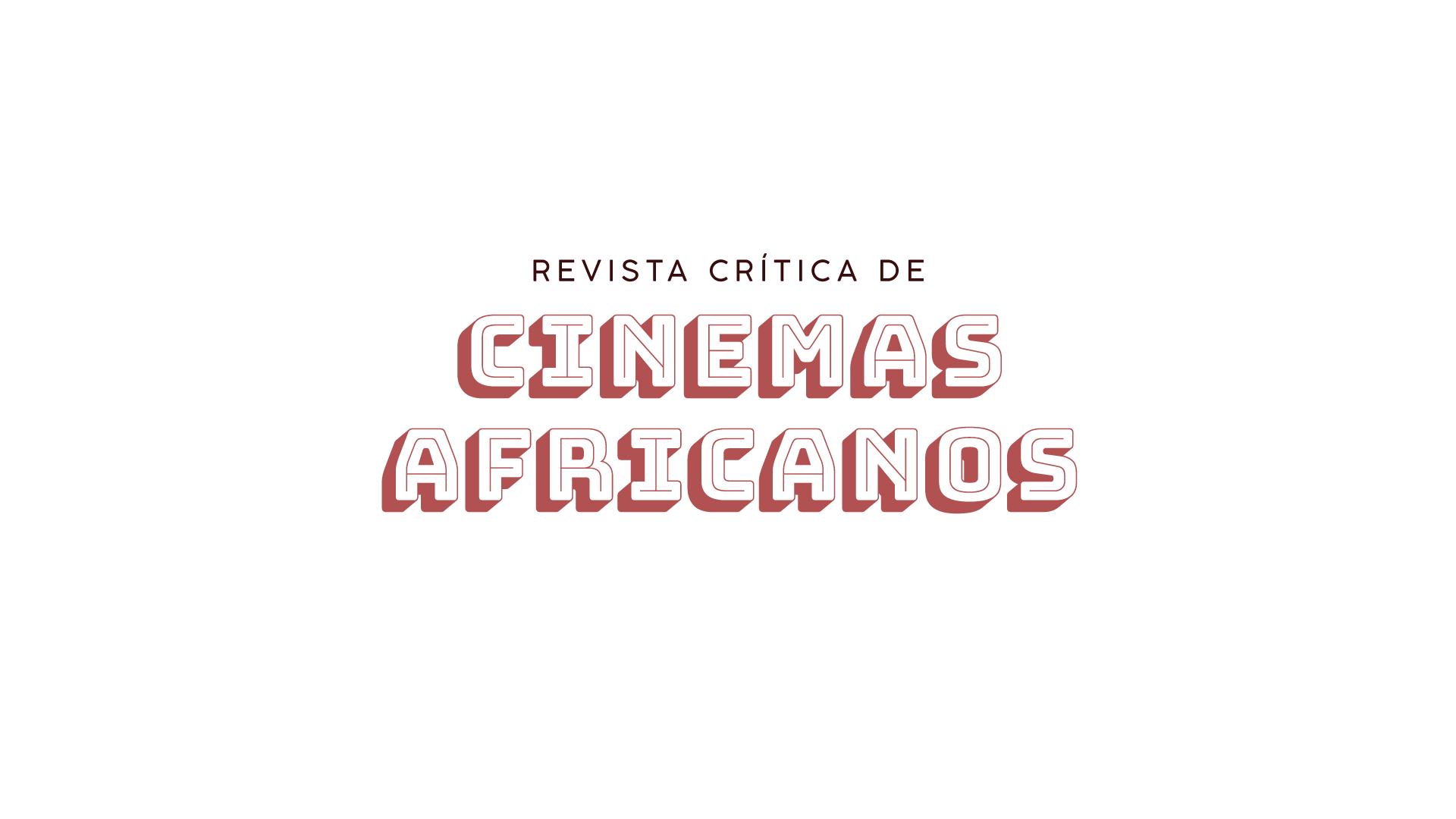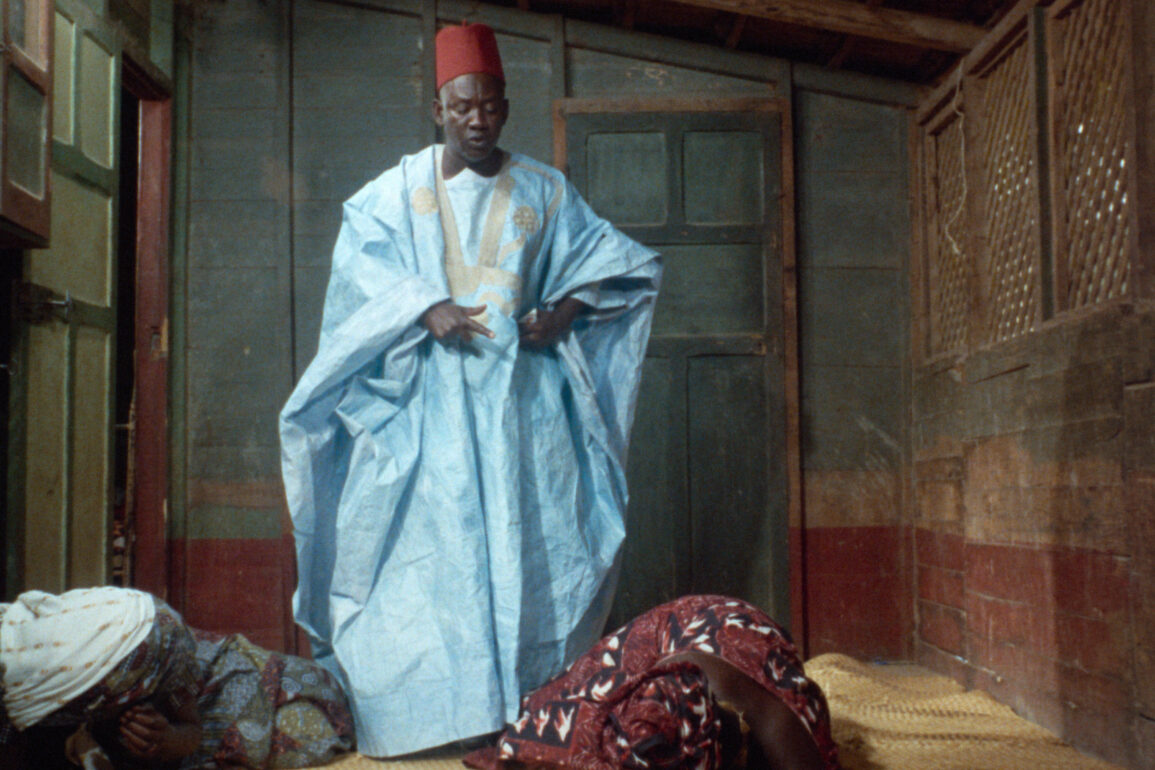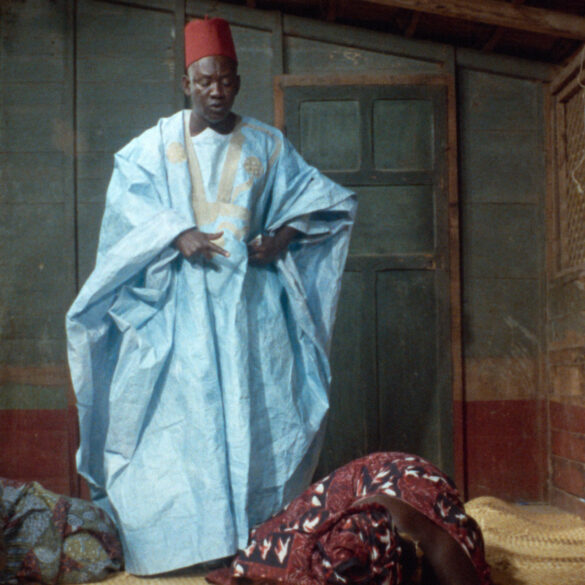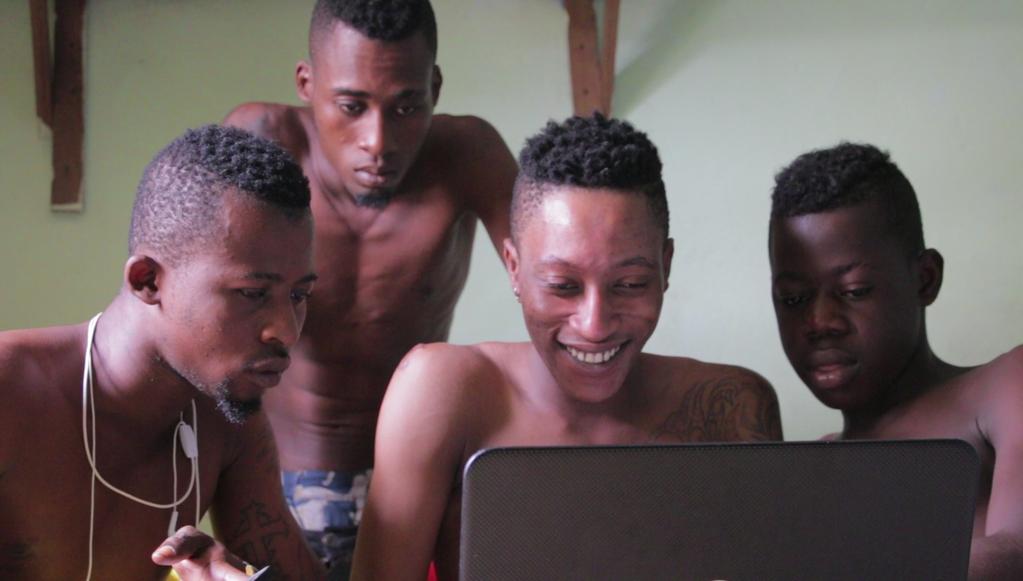Film Mandabi (1968), Ousmane Sembène
by Lucas Ribeiro de Oliveira
One dry tree on the turquoise sky background. The sound of the strings of a kamanija, Arabic violin, music. A village, small wooden houses that contrast between brown, blue and yellow. Six men lined up in pairs, barbers tending to their respective clients under the shade of the tree. Ibrahim Dieng’s (Mamadou Guye) face being massaged in close-up. The barber carefully explores Ibrahim’s face, digging deep into his nose with shaving cream-smeared fingers. The music follows. The barber prepares his razor. Ibrahim’s face remains calm, as does the barber’s. Tufts of hair are delicately cut. Wearing a wide white striped coat, Ibrahim straightens himself in front of the small mirror, takes a coin and pays for the service. Four women in colorful and patterned dresses carry buckets. A postman with letters in hand takes some relief from the likely scorching sun before moving on to the next recipient. Thus begins the film Mandabi by Ousmane Sembène, released in 1968.
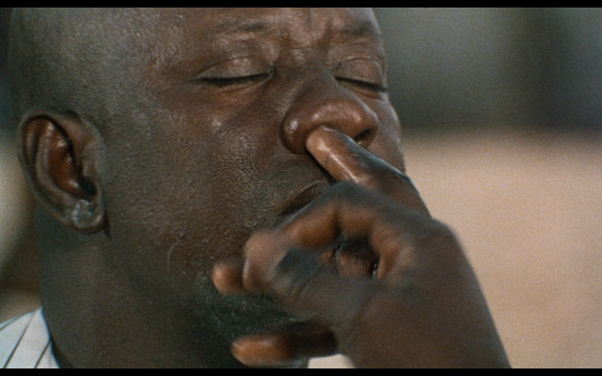
In the work in question, Ibrahim lives in a village with Mety (Ynousse N’Diaye) and Aram (Isseu Niang), his two wives, by whom he is constantly cared for and guided, maintaining a dubious relationship of submission and sporadic threats; their seven children and the frequent neighborhood. Sembène’s feature film is a milestone for being the first to be recorded in the African language (Wolof/Wolof). Ibrahim and his wives, as well as the Senegalese densely represented by the figuration, profess and share the Islamic faith among themselves.
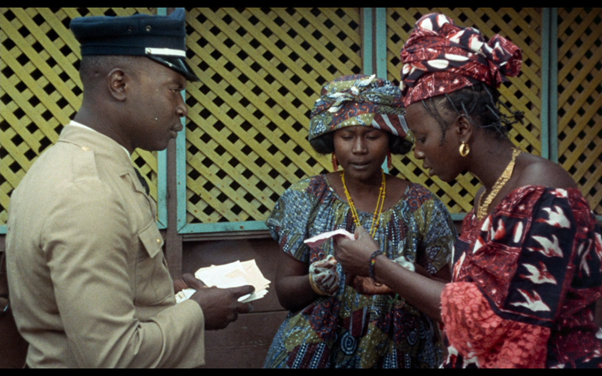
Obstacles that permeate the work, experienced by the protagonist, coexist radically with the bureaucratic discrepancies of the public administration system, which come to light with Ibrahim’s attempt to withdraw, through a payment order (Mandabi), 25 thousand francs sent by Abdou his nephew who (about) lives in Paris. Presented in a highlighted cut, Abdou narrates in voice over his mishaps in the city of Paris while a powerful religious chant is sung and sociocultural differences take shape in the streets of the European city where the young Muslim expresses his faith and works as a street sweeper. As the news spread, many requests were made to Ibrahim’s family for financial help, ranging from sums of money to everyday things, such as a few kilos of rice.
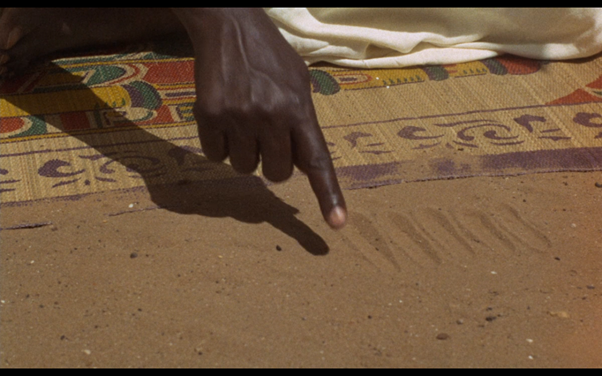
Ironically, the problem-situations that arise from the imbroglio involving Ibrahim permeate the comic, where the tragic is usual and lightness is part of an expertiseof the villagers to deal with the predatory reality. Rescuing the money, which at first seemed simple, turns into a mission that lasts throughout the plot, revealing a social web of complex and contradictory individual and collective struggles and relationships. The humor that surrounds the complexity of these struggles and relationships is extracted from there, crossing the religious, bureaucratic and economic comments throughout the film. Highlight for the performances that work very well in this relationship between laughter and tragedy; in facial expressions and speech, the annoyances of everyday life are also treated in their laughable nature. The sun burns in the village while the concreteness of the envisioned money is obstructed by the bureaucracy of law, especially the rights of a poor and illiterate man trapped in the deep-rooted remnants of colonialism.
Lucas Ribeiro de Oliveira is a musician, fanzine, author of Pancrácio, a surrealist fanzine with a single edition. He currently works with translations and is a columnist/founding member of Revista Feio, as well as a screenwriter for a webseries project under development. He leads a musical project of electroacoustic pieces, thanks to which he was invited to compose the original soundtrack for the short film Presente Posthumo, by Ninah Nogino, still without a release date.
This text was developed at the Critical Laboratory, which took place during the 2022 edition of the Mostra de Cinemas Africanos in São Paulo, taught by film critic Juliana Costa.
